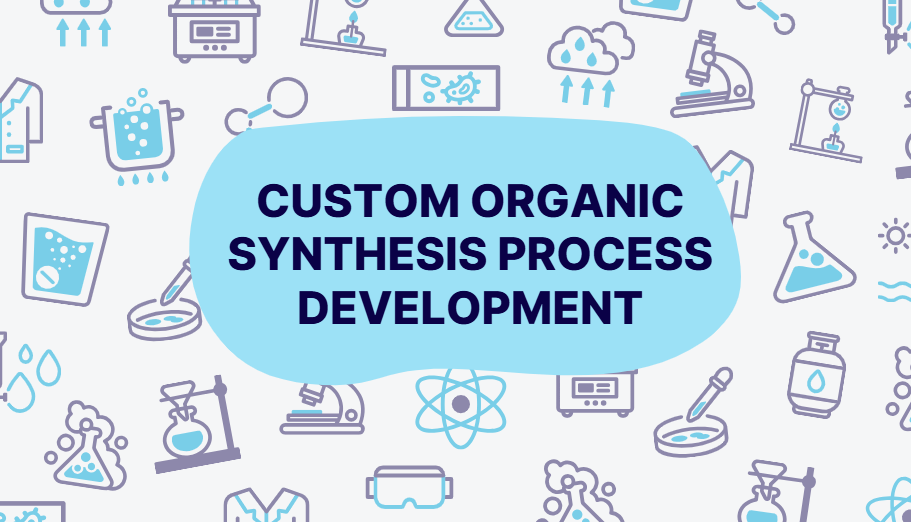The delivery of peptide and protein therapeutics has revolutionized medicine, offering precision treatments for chronic diseases, cancer, and autoimmune disorders. Despite their tremendous potential, peptides and proteins face significant challenges in stability, bioavailability, and targeted delivery. Custom polymer synthesis has emerged as a game-changing approach, enabling the development of innovative delivery systems tailored to the unique requirements of peptide and protein drugs.
In this article, we explore the role of custom polymer synthesis in peptide and protein drug delivery, its methodologies, applications, and future prospects.
Challenges in Peptide and Protein Drug Delivery
Peptides and proteins are highly potent and specific, but their delivery faces several obstacles:
- Poor Stability: Susceptible to enzymatic degradation in the gastrointestinal tract and bloodstream.
- Low Bioavailability: Limited membrane permeability and rapid clearance hinder effective absorption.
- Immunogenicity: Some proteins may trigger unwanted immune responses.
- Short Half-life: Rapid metabolism necessitates frequent dosing.
Why Custom Polymers?
Custom polymers can address these challenges by:
- Enhancing drug stability through encapsulation or chemical modification.
- Improving solubility and bioavailability.
- Facilitating controlled and targeted release.
- Minimizing immunogenicity and side effects.
Role of Custom Polymer Synthesis
1. Encapsulation of Peptides and Proteins
- Polymers such as poly(lactic-co-glycolic acid) (PLGA) and polyethylene glycol (PEG) are commonly used for encapsulating peptides and proteins.
- Customizable degradation rates allow controlled release over time.
2. Surface Modification for Targeted Delivery
- Functionalizing polymers with targeting moieties (antibodies, peptides) directs the delivery system to specific tissues or cells.
- Example: Folate-modified polymers for targeting cancer cells.
3. Conjugation Strategies
- PEGylation: Attaching polyethylene glycol (PEG) to peptides or proteins increases their half-life and reduces immunogenicity.
- Bioconjugation: Custom polymers are chemically linked to peptides or proteins, protecting them from degradation.
4. pH and Enzyme-Responsive Systems
- Polymers can be designed to release drugs in response to specific triggers like pH changes or enzymatic activity, ensuring site-specific delivery.
Key Techniques in Custom Polymer Synthesis
- Ring-Opening Polymerization (ROP):
- Used for synthesizing biodegradable polymers like PLGA.
- Atom Transfer Radical Polymerization (ATRP):
- Allows precise control over molecular architecture.
- Click Chemistry:
- Facilitates the rapid and efficient attachment of functional groups to polymers.
Applications in Drug Delivery
1. Injectable Systems
- Microspheres and nanoparticles made from PLGA or PEG are widely used for long-acting injectables, such as in insulin delivery.
2. Oral Delivery
- Custom polymers protect peptides from gastrointestinal degradation and enhance absorption.
- Example: Enteric coatings that dissolve in the small intestine.
3. Transdermal Delivery
- Polymeric microneedles and hydrogels offer a non-invasive method for delivering peptides and proteins through the skin.
4. Inhalable Formulations
- Polymers stabilize peptide drugs in aerosols, enabling delivery to the lungs for conditions like asthma or cystic fibrosis.
Advantages of Custom Polymers in Drug Delivery
- Improved Stability: Protect peptides and proteins from harsh physiological conditions.
- Targeted Delivery: Functionalized polymers ensure delivery to specific tissues or cells.
- Controlled Release: Enable sustained therapeutic effects with reduced dosing frequency.
- Reduced Side Effects: Minimize off-target effects and immunogenicity.
Case Studies
1. Exenatide for Diabetes
- PLGA microspheres have been developed for sustained release of exenatide, a peptide for glucose regulation.
2. Antibody-Drug Conjugates
- Custom polymers are used to conjugate antibodies with therapeutic peptides for targeted cancer therapy.
3. Interferon Therapy
- PEGylation has improved the half-life and bioavailability of interferons for autoimmune diseases.
Future Trends in Polymer-Based Drug Delivery
- Smart Polymers:
- Stimuli-responsive polymers that release drugs based on temperature, pH, or light.
- Hybrid Systems:
- Combining polymers with other materials, such as lipids or hydrogels, for multifunctional delivery platforms.
- Personalized Medicine:
- Custom polymer synthesis tailored to individual patient needs.
- Regenerative Medicine:
- Delivering peptide and protein drugs for tissue repair and growth.
ResolveMass Laboratories: Your Partner in Custom Polymer Synthesis
ResolveMass Laboratories is at the forefront of custom polymer synthesis, offering innovative solutions for peptide and protein drug delivery. Our expertise includes:
- Tailored Polymer Design: Creating polymers with optimal properties for drug encapsulation and release.
- Analytical Testing: Comprehensive characterization to ensure quality and efficacy.
- Regulatory Support: Helping you navigate the path to clinical approval.
- Custom Polymer Synthesis
- Peptide Drug Delivery Solutions
- Advanced Material Analysis
https://resolvemass.ca/contact/Contact Us to discuss how we can transform your drug delivery systems.
References
- Makadia, H. K., et al. (2011). Poly lactic-co-glycolic acid (PLGA) as biodegradable controlled drug delivery carrier. Polymers. DOI: 10.3390/polym3031377
- Veronese, F. M., et al. (2008). PEGylation, successful approach to drug delivery. Drug Discovery Today. DOI: 10.1016/j.drudis.2008.01.006
- Gupta, P., et al. (2021). Advances in polymeric systems for protein and peptide drug delivery. Current Drug Delivery. DOI: 10.2174/1567201818666210216123710

